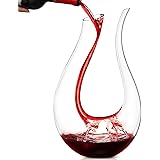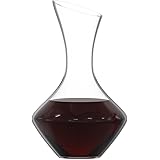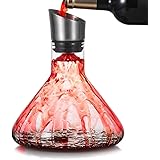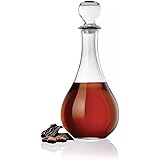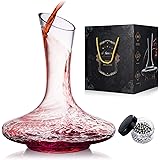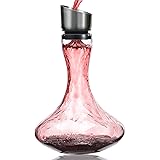Are you considering diving into the rewarding world of homemade wine making, especially for your prepping goals or simply for self-sufficiency? As the accompanying video highlights, getting started with the right equipment can feel like navigating a complex maze. However, with the proper guidance, you can transform simple ingredients into delicious homemade wine, ready for sharing or for future contingencies. This comprehensive guide expands on the video’s essential advice, offering a clear roadmap for assembling your perfect beginner’s wine making kit.
Mastering Homemade Wine Making for Prepping and Beyond
Embarking on your homemade wine making journey requires careful consideration of initial gear. While it may seem tempting to purchase individual components piecemeal, this approach often leads to confusion and potential missteps. For those new to the craft, especially if you’re building a sustainable skillset for prepping, a pre-packaged starter kit provides a structured and economical entry point. These kits typically range from $70 to $130, offering a significant value compared to buying each item separately. They also ensure you receive all the fundamental tools necessary for your first successful fermentation.
Choosing the Right Wine Making Kit for Beginners
Most starter kits sold on the market are designed for producing larger quantities, specifically five or six gallons of wine. This yield translates to approximately 25 standard bottles of wine per batch. While this volume might sound impressive, it presents a considerable risk for first-time wine makers. Imagine investing time and ingredients into such a large batch, only for an unforeseen issue to spoil the entire effort. Pouring out 25 bottles of spoiled wine can be incredibly disheartening and a significant waste of resources.
Instead of committing to a large five-gallon batch immediately, focus your initial efforts on smaller, more manageable quantities. The video wisely recommends supplementing your starter kit with additional supplies for one or two-gallon fermentations. This strategy significantly reduces the potential for wasted effort and materials while building crucial confidence. Many beginner recipes are also conveniently scaled for one-gallon batches, simplifying your initial experiments.
Why Start Small? The Benefits of One-Gallon Batches
Beginning with one-gallon batches offers several distinct advantages for novice wine makers. Firstly, the financial risk is substantially lower; if a batch doesn’t turn out perfectly, you are only discarding four to five bottles of wine, not 25. This allows for experimentation without the fear of major losses. Secondly, smaller batches ferment more quickly and are easier to manage in terms of temperature control and sanitation, which are critical elements for successful winemaking.
Working with one-gallon containers also accelerates your learning process. You can experiment with different fruit combinations, yeast strains, or sugar levels in parallel without waiting weeks for a large batch to finish. This multi-batch approach provides invaluable experience, helping you understand how various factors influence the final product. Building your skills on a smaller scale allows you to master the basics before scaling up to larger, more ambitious projects.
Essential Components of Your Starter Wine Making Kit
A standard wine making starter kit comes equipped with a variety of crucial items, each playing a vital role in the fermentation process. Understanding these components will empower you as you begin your homemade wine making journey. These tools are designed to guide you through primary fermentation, secondary fermentation, and the eventual bottling of your delicious creation.
- Primary Fermenter: This is typically a five or six-gallon food-grade plastic bucket with a lid. It provides ample head space for the vigorous initial fermentation phase.
- Secondary Fermenter (Carboy): A five or six-gallon glass or plastic carboy serves as the secondary fermenter. This narrow-necked vessel minimizes exposure to oxygen after the initial fermentation subsides, preventing spoilage.
- Airlock and Stopper: The airlock fits into the carboy or bucket lid, allowing carbon dioxide gas to escape without letting unwanted oxygen or contaminants enter.
- Hydrometer and Test Jar: A hydrometer measures the sugar content of your must (unfermented juice) before and after fermentation, helping you calculate the alcohol content.
- Auto-siphon or Racking Cane with Tubing: This tool allows you to transfer wine cleanly from one vessel to another without disturbing the sediment at the bottom.
- Bottle Filler: A simple device that attaches to your siphon tubing, allowing for easy and mess-free filling of bottles.
- Bottle Brush and Carboy Brush: Essential for thorough cleaning and sanitation, preventing off-flavors and spoilage.
- Corks and Corker: These are critical for sealing your finished wine bottles, protecting the wine from oxidation and allowing it to age properly.
- Basic Chemicals: Often includes Camden tablets (potassium metabisulfite) for sanitizing and inhibiting wild yeasts/bacteria, yeast nutrient, and perhaps pectic enzyme to clarify fruit wines.
While the kit provides the large-scale fermenters, remember to acquire smaller two-gallon buckets for primary fermentation and one-gallon jugs for secondary fermentation. Aim for at least four one-gallon jugs and four two-gallon buckets to give you ample flexibility for multiple small batches. This approach allows you to rotate different fruit wine recipes and gain valuable experience efficiently.
Embracing Fruit Wines: The Easiest Path to Success
For beginners in homemade wine making, especially those interested in practical results for prepping, fruit wines are an absolute game-changer. These delightful beverages are considerably simpler to produce than traditional grape wines, requiring less aging and complex processing. The video strongly recommends investing in an additional fruit wine kit add-on, typically costing between $30 and $50. This small investment unlocks a world of easy-to-make, delicious wines.
Fruit wine kits often include specialized enzymes and additional chemicals that are particularly beneficial when working with fresh fruits. Pectic enzyme, for instance, helps break down pectin in fruits, preventing haze and improving juice extraction. These kits also frequently come with a dedicated recipe book, brimming with straightforward instructions for various fruit wines like apple, berry, or peach. These recipes are specifically designed for quick consumption, making them ideal for casual enjoyment or short-term storage for prepping needs. Imagine sharing your homemade apple wine with friends, knowing you crafted it yourself!
Benefits of Focusing on Fruit Wines
Choosing fruit wines as your starting point offers numerous advantages: they are forgiving, flavorful, and incredibly versatile. You can utilize seasonal fruits from your garden or local markets, making them a sustainable choice for preppers. Their vibrant flavors also lend themselves well to experimentation; you can create unique blends and discover your personal favorites without a steep learning curve. The rapid turnaround time means you enjoy the fruits of your labor much sooner, providing immediate gratification and motivation to continue learning.
Many fruit wines do not require extensive aging periods, unlike their grape-based counterparts. This means you can ferment, bottle, and enjoy your creations within a few months, rather than waiting a year or more. This characteristic is particularly appealing for those looking to build up a diverse pantry of homemade goods quickly. From crisp apple wines to sweet berry varieties, fruit wines provide a fantastic entry point into the diverse world of homemade wine making, setting a solid foundation for more advanced projects down the line.
Recommended Suppliers for Your Wine Making Journey
Finding reliable suppliers for your homemade wine making equipment and ingredients is crucial for a smooth start. The video specifically mentions two reputable companies known for their quality products and excellent customer service: Midwest Brewing and Northern Brewing. Both have similar pricing structures and efficient shipping, making them popular choices within the homebrewing community. They offer comprehensive starter kits, individual components, and a wide array of ingredients for both beer and wine making.
When selecting a supplier, look for companies that provide detailed product descriptions, customer reviews, and responsive support. This ensures you can easily find everything you need and troubleshoot any questions that may arise. Consider their selection of fruit wine additives and recipe resources, as these will be invaluable for your initial projects. A good supplier becomes a trusted partner in your homemade wine making endeavors, supporting you from your very first batch to your most ambitious creations. Starting your journey into homemade wine making is an exciting step towards self-sufficiency and a fulfilling hobby.


